(June 12, 2024) Every weekend in 2005, Prashant Sharma found himself amid a group of people in his borough in London discussing environmental issues. Someone with a passion for the environment and nature, the Indian lad found his calling in that one decade that he spent in the UK. He returned to India in 2015 with the purpose of serving and began creating awareness on greywater recycling. In 2022, he started his nonprofit Positive Action for Child and Earth Foundation to create a positive impact on the environment by working to promote a circular economy. “I have always been very concerned about the finite resources available on Mother Earth, especially water,” Prashant tells Global Indian. He has impacted in six states of India and helped save a million litres of water every year.
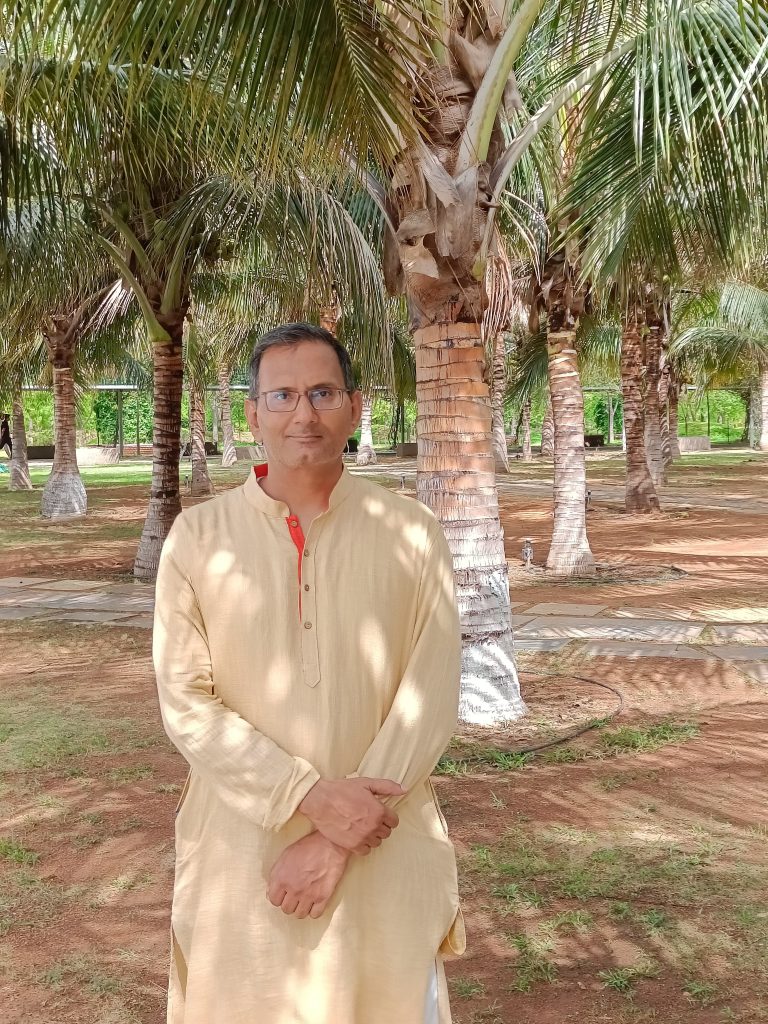
“Creating awareness about greywater recycling is imperative for change. It’s improved in the last few years but we still have a long way to go,” adds the 50-year-old.
Passion for environment
Born in Mumbai to parents who work in the government, growing up, he had seen the water crisis from close quarters. Despite the city having a coastline, it has its share of trouble with water, especially in high-rise buildings. Ever since his formative years, Prashant found himself concerned about water. “If I see water being wasted, it disturbs me. I cannot stand a leaking tap. I have to complain and get it fixed.”
A sustainability champion in the UK
Though he was inclined to work for the environment, this desire stayed dormant since “livelihood took precedence.” But five years after finishing his MBA from the University of Lincoln in the UK, he relocated to London in 2005 for work. “Moving to London brought that shift in me as people in the UK are highly aware of the environment. I became a part of this group in my borough where people met to discuss matters concerning the environment and how they could extend help. Soon I became one of the sustainability champions of my borough in London creating awareness on waste segregation.” he says.
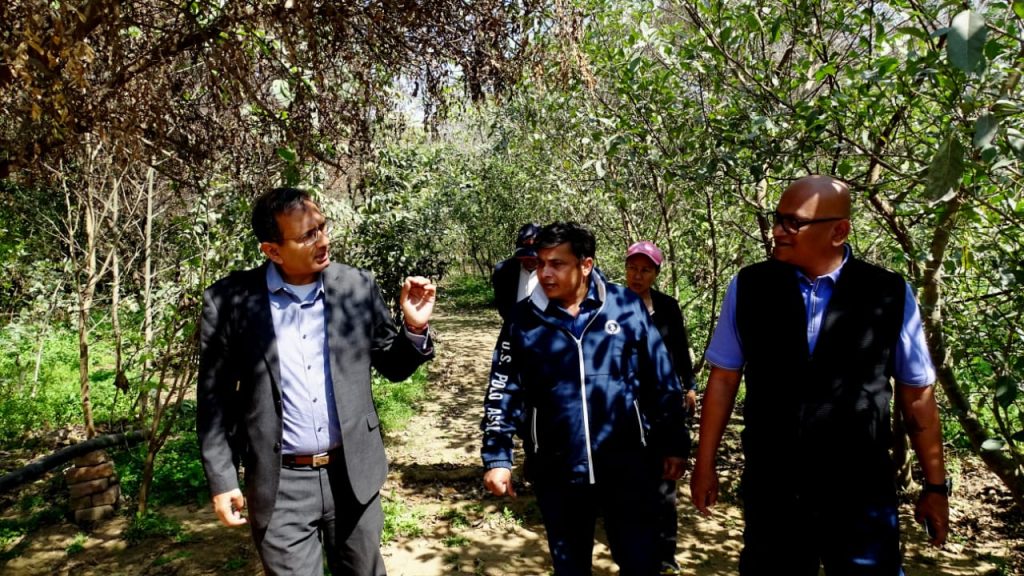
What set Prashant out was that despite being a part of a developed economy, the people of the UK were concerned about issues like vermicompost and waste segregation. “This left me impressed and set me thinking that these things are urgently required in India. The seed that I need to return to India to make an impact was put in those early years in London,” says the social entrepreneur, who worked in Fortune 10 companies like Shell, British Petroleum, IBM, Accenture, HM Revenue, and Coins for a decade.
Returning with a purpose
Over the years, the desire to return grew stronger and exacerbated after watching Swades. “I knew I had learnt enough and was keen to make a difference back home and that one sentence in the film – Go back and light your light bulb – pushed me to buy a one-way return ticket to India.” A decade ago, when Prashant boarded the flight to London, he left with the intention of returning to India. “I had a cushy job and things were going in my favour but it’s not about having a pay check – it’s also about taking this forward and giving back. Working towards environmental sustainability and a circular economy had driven me for the last few years in the UK,” he says. “For me, it was always about creating an impact. There’s a growing community of people who are returning to serve. India needs people who want to do something for the environment selflessly.”
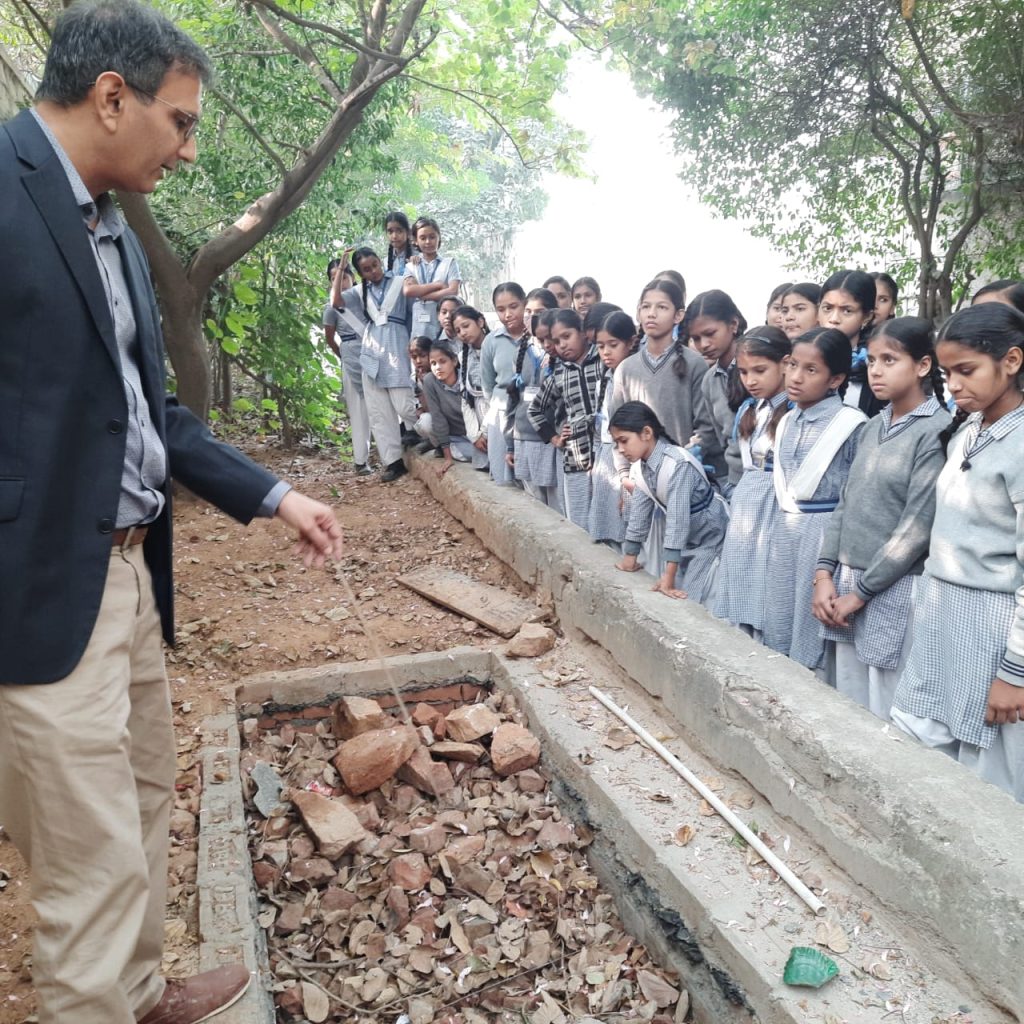
Greywater recycling
After experiencing a hosepipe ban in the UK amid water scarcity in 2010, he narrowed down on greywater recycling – a concept he discovered while washing his car. “The water was primarily clean apart from dust particles, why don’t we recycle it?” Upon research, he found it being practiced in parts of the UK and Europe but at a very small scale.
Greywater, he explains, derived from baths, sinks, and kitchens, differs from blackwater (containing faecal matter and urine), which requires sewage treatment. “Out of 100 litres of water wasted in a home or school every day, around 80 percent is greywater, which is typically mixed with blackwater and sent to the sewage treatment plants (STP) which are one of the biggest emitters of greenhouse gases. If we can reduce 70 percent of the wastewater going to STPs, we will reduce the carbon print substantially.”
He found greywater recycling to be a low-hanging fruit. “All you need to do is divert the greywater and recycle it in a decentralised manner.” Returning to India, he started creating awareness of wastewater recycling in his apartment in Delhi along with schools. He soon realised he needed structure to create a bigger impact, and in early 2022, started the nonprofit Positive Action for Child and Earth Foundation. He began with public spaces – government schools and apartments and found applause from authorities who were happy to contribute to the environment with minimum effort.
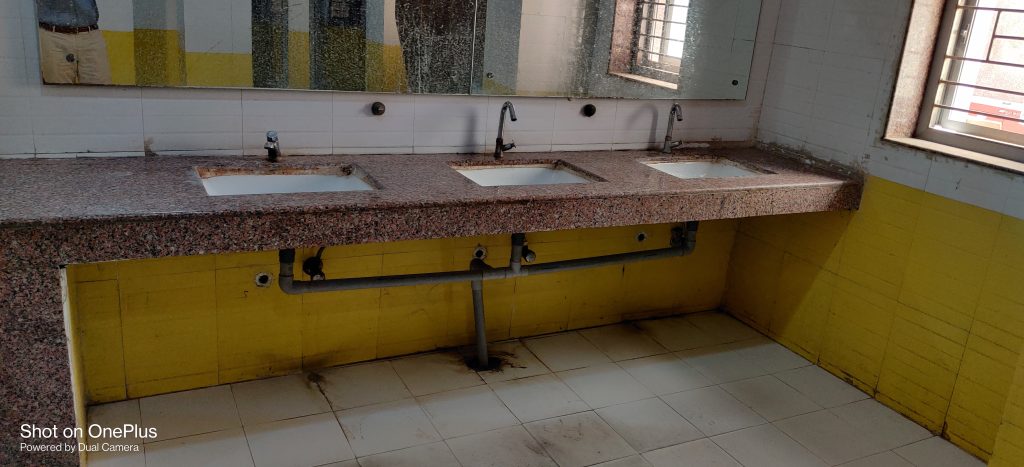
Ask him how the process works, and he says, “We do a water audit of the premises – school or society – with the facilities manager and a plumber. They guide us through the layout of the pipes, indicating the paths for greywater and blackwater, their mixing points, and the greywater discharge locations. We then prepare a detailed assessment report identifying the places where greywater can easily be diverted before it mixes with the blackwater. Later, we recommend a solution on how to go about recycling.”
Leaving an impact
Till now, the nonprofit has spread its wings in six states including Telangana, Andhra Pradesh, Uttar Pradesh, Odisha, Uttarakhand, and Delhi. Prashant says that by recycling greywater, he is saving an equivalent amount of fresh water. “We are recycling a million litres of water every year.” It’s a target he wishes to achieve daily. “But for that, we need support and collaboration.”
Prashant is currently using his savings to keep things rolling, along with a revenue model that includes consulting charges. “We also provide greywater recycling as a service where we audit, design the system, test it, operationalise it, and maintain it, and we charge for Annual Maintenance Contract.” He also gets subcontracts from bigger organisations and donations from friends for projects in remote areas. For Prashant, funding has been one of the biggest challenges. “We want to help more people but we have limitations in terms of finance.”
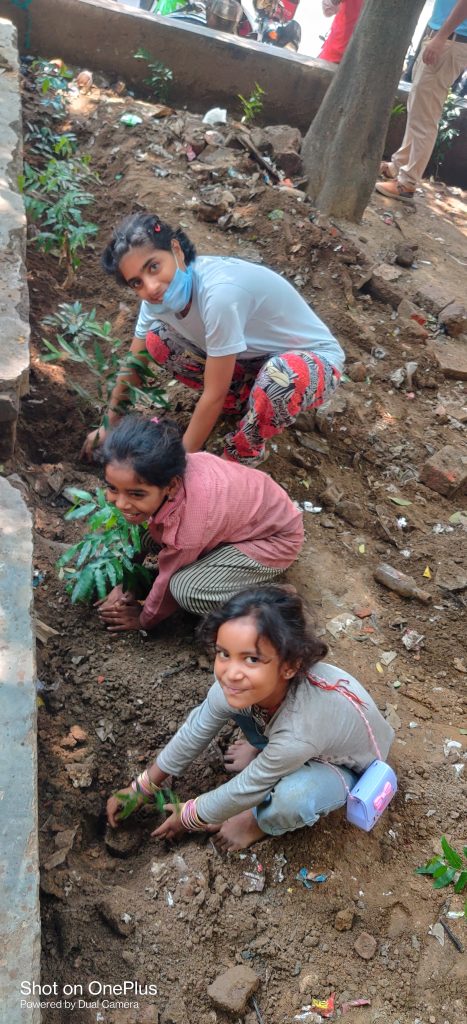
The nonprofit is currently focused on wastewater and repairing ecosystems. Over the years, their canvas has become bigger. “We started with schools and now we are looking at village-level wastewater recycling through watershed management – rejuvenating and maintain ponds, and making these community spaces.”
However, Prashant believes that we haven’t scratched the surface and a lot of greenwashing happens. “Everyone needs to do their bit. The greatest threat to our environment is the assumption that responsibility lies elsewhere. Everybody should know how they can cut down on their carbon footprint.” The social entrepreneur urges the government to promote greywater recycling more aggressively than rainwater harvesting. “Rainfall is seasonal but greywater is available throughout the year.” Moreover, he emphasises the need for wastewater segregation before it reaches STPs.
The future plan
Having made a significant impact, Prashant now wants to focus on new apartments coming up in metropolitan and Tier 2 cities. His plans to partner with the builders during the construction phase to design a plumbing system that helps in the collection, recycling, and reuse of greywater for bathroom use. “Also focus on greywater recycling in schools and universities which generate light greywater that is very less contaminated and easier to recycle.”
In rural areas, Prashant plans to focus on springshed and watershed management, particularly by reviving traditional water temples (Naulas) in the Kumaon region, which are historically known for their mineral-rich water. “Of the one lakh Naulas, 96,000 have dried up, leaving only 4,000. In the Nainital region, we have identified 80 Naulas for a pilot project to restore these water temples and prevent flash flooding caused by poor springshed management.” For watershed management, he aims to revive and recharge ponds. His initiative also includes creating “oxygen factories” by planting dense forests with native species in small areas to help reduce the carbon footprint.
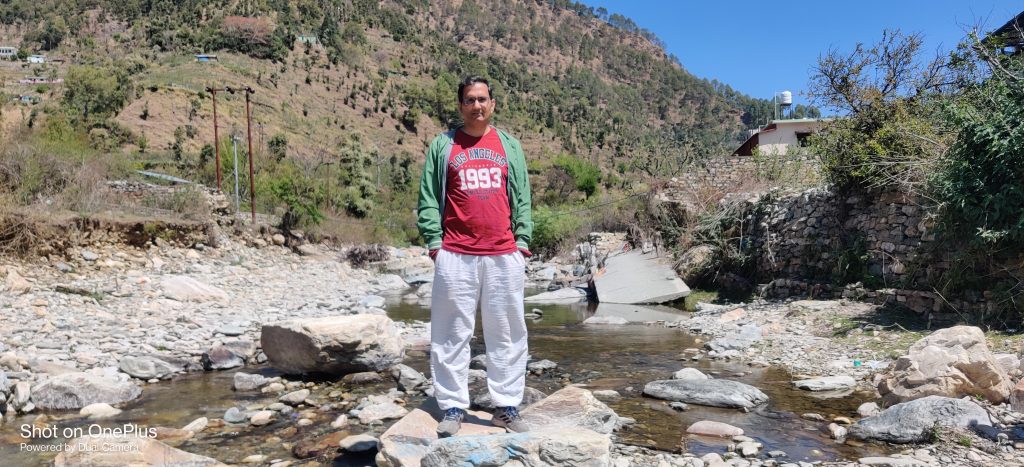
A half marathon runner, who plays the guitar and wants to be an ashtanga yogi, Prashant says conscious and planned development is the need of the hour. “People are looking for quick fixes but climate action is like a marathon and not a sprint. We don’t inherit the earth from our ancestors, we are borrowing it from our children. We have to be conscious of our footprint and how we reduce it.”
- Follow Prashant Sharma on Instagram and LinkedIn
- You can also reach out to him on pash.childrensearth@gmail.com or call him on 9711086014




